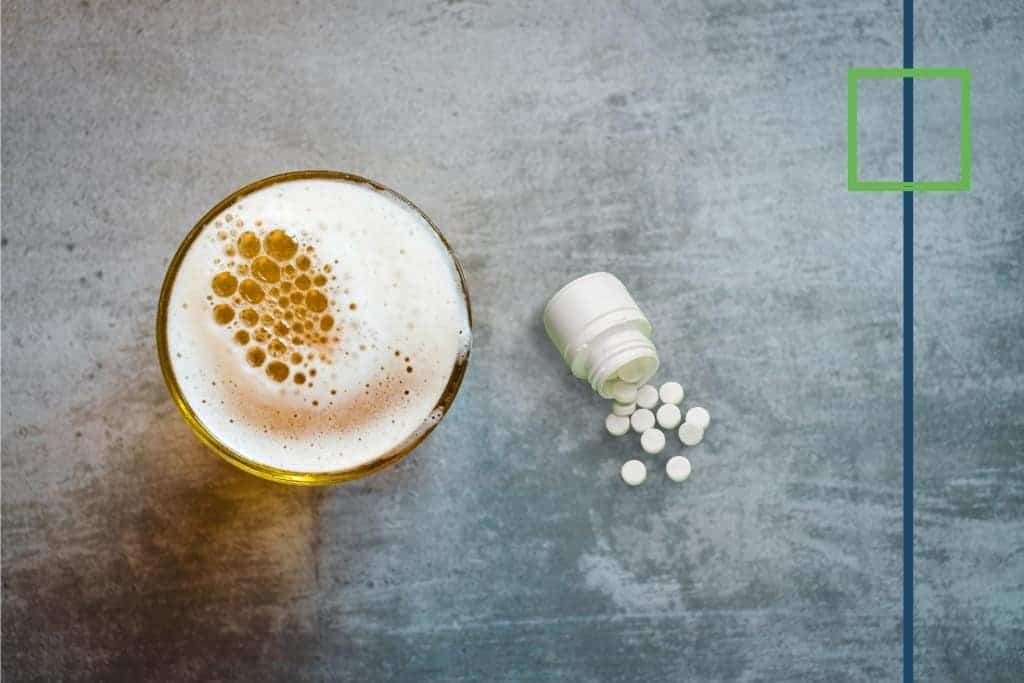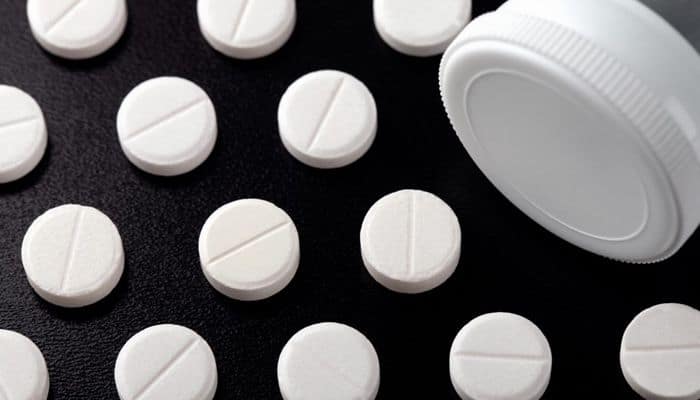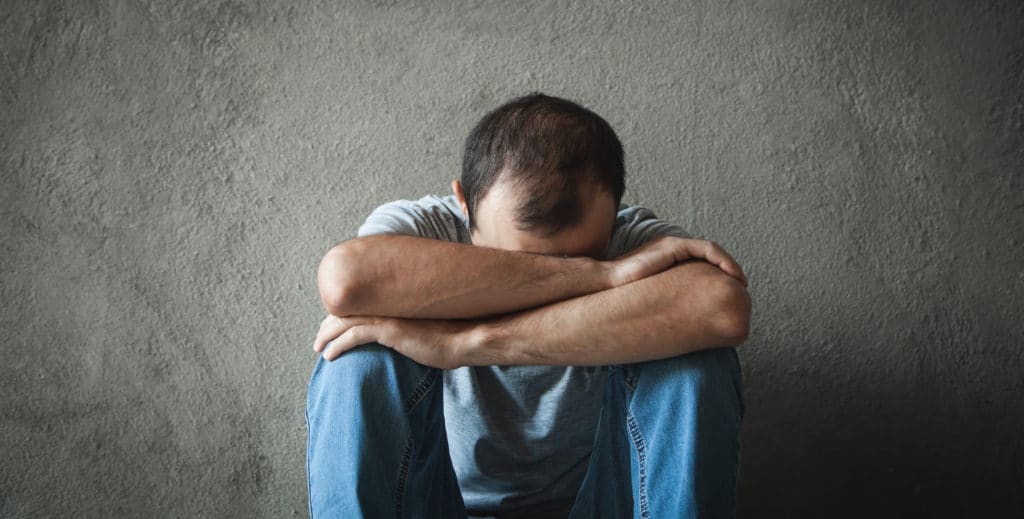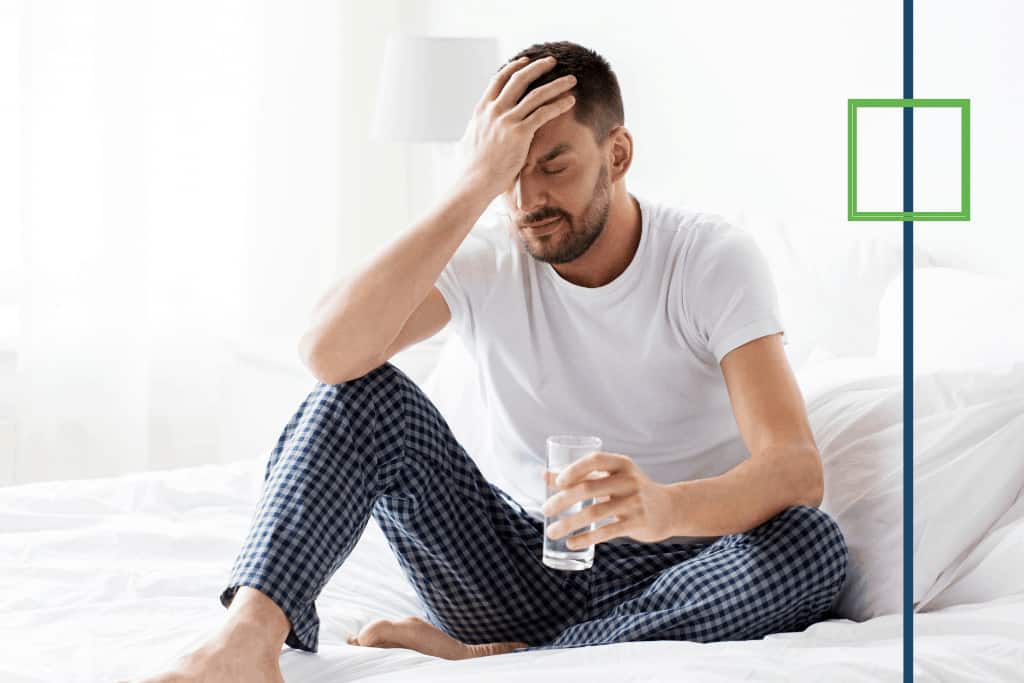What is Ritalin?
Ritalin or Methylphenidate hydrochloride (the generic for Ritalin) is a stimulant for ADHD treatment (attention deficit hyperactivity disorder) and managing narcolepsy (sleep disorder) symptoms. It affects the parts of the brain and central nervous system (CNS) that control impulses and hyperactivity. However, this prescription drug is prone to abuse — begging the questions, “can you inject Ritalin?” and “can you snort Ritalin?” It is also often abused as a party drug, just like Adderall, and considered a rave energy pill because it increases users’ focus and energy, producing bursts of activity and talkativeness — begging the questions, “can you mix Ritalin and alcohol?” and “how long does for Ritalin to leave your system?”
Ritalin is one of the trade names for the drug known as methylphenidate. Other brand names can include Concerta, Methylin, and Metadate. Methylphenidate was first approved by the U.S. Food and Drug Administration in 1955 for treating what was then referred to as hyperactivity. Moreover, its ability to improve concentration means some people use it to boost cognitive ability. Ritalin and Adderall are called study drugs because they are inappropriately used to increase the user’s attentiveness and work output. [1]
Methylphenidate (Ritalin) is a controlled substance (Schedule II) and has abuse potential. If you have a history of substance use problems, you must inform your doctor before taking this medication. Common side effects include:
- Headache
- Insomnia
- Irritability
- Palpitations
- Tachycardia
- Nasal stuffiness
- Decreased appetite
- Nausea
- Cough
- Rash
Uncommon but potentially severe adverse events include psychotic symptoms, cardiovascular events, abuse and dependence, and reduced adult height with long-term therapy in children.

Get Your Life Back
Find Hope & Recovery. Get Safe Comfortable Detox, Addiction Rehab & Dual Diagnosis High-Quality Care.
Hotline(844) 597-1011Can You Mix Ritalin and Alcohol?
Many adults with ADHD are prescribed a stimulant drug like Ritalin, Adderall, or Vyvanse to help them be more attentive and focused. Alcohol is a drug, too. But it is a depressant. The two don’t balance when you mix Ritalin and alcohol or if you are drinking on Ritalin. ADHD medications can blunt that relaxed, buzzed feeling you get from alcohol. So you may consume more than you should, leading to alcohol poisoning.

The labels on ADHD prescription drugs advise against drinking on Ritalin. But some medical practitioners think it’s okay for people to have a glass of wine or a beer, maybe two depending on the person. Some individuals are naturally better at holding their booze. Just to be safe, doctors say you should wait until your ADHD meds wear off before you have that cocktail.
Ritalin boosts the activity of two chemicals in the brain, dopamine and norepinephrine. This allows the user to buckle down and concentrate. Alcohol slows the body’s vital functions, leading to slurred speech and slow reaction time.
Ritalin and Alcohol Consumption
Ritalin and alcohol are not safe to mix under any circumstances; however, it is common for recreational users to mix the two, as Ritalin is a stimulant and alcohol is a depressant. Users may do so to counteract the negative effects of either drug; for example, a person may take Ritalin to offset the depressant or sedative effects of alcohol. This essentially allows them to party for longer and drink more.
Mixing prescription drugs with alcohol, or Ritalin and alcohol, can result in unpredictable effects. The introduction of alcohol into a system with Ritalin in it can exacerbate the negative side effects of Ritalin. This can result in high blood pressure and cause the user’s heartbeat to dangerous levels. Problems with irregular sleeping patterns can develop when Ritalin and alcohol are combined. Some users of both drugs also see an increase in anxiety, leading to further self-medication and a difficult cycle of drug abuse.
Get Help. Get Better. Get Your Life Back.
Searching for Accredited Drug and Alcohol Rehab Centers Near You?
Even if you have failed previously and relapsed, or are in the middle of a difficult crisis, we stand ready to support you. Our trusted behavioral health specialists will not give up on you. When you feel ready or just want someone to speak to about therapy alternatives to change your life call us. Even if we cannot assist you, we will lead you to wherever you can get support. There is no obligation. Call our hotline today.
(844) 597-1011Ritalin and Alcohol Interaction
Ritalin (Methylphenidate) is a central nervous system (CNS) stimulant. It works by increasing levels of chemical messengers called norepinephrine and dopamine in the brain. Because it works on the CNS (brain and spinal cord), it can also cause other changes in your body. It can increase your heart rate and blood pressure. It can also cause fever, faster breathing, and dilated pupils.
Alcohol, on the other hand, is a central nervous system CNS depressant. CNS depression slows things down. It can make it harder for someone to talk and cause them to slur their speech. It can affect the user’s coordination and make it harder to walk and keep their balance. It can also make it harder to think clearly and control impulses.

However, the effects of Ritalin and alcohol don’t cancel each other out, even though they may seem like opposites. Rather, the effects of these two drugs combine to cause big problems. These include increased side effects and the risks of a drug overdose, alcohol poisoning, and alcohol withdrawal.
According to the National Center for Biotechnology Information (NCBI). The enhanced behavioral effects when Ritalin and alcohol are combined are likely due to the selective increase in brain d-MPH ( d isomers of methylphenidate) concentrations. These studies are consistent with observations in humans of increased interoceptive awareness of the Ritalin and alcohol combination and provide new clinical perspectives regarding the enhanced ataxic effects of these alcohol and Ritalin combinations. [2]
Dangers of Mixing Ritalin and Alcohol
Although Ritalin can have a calming effect on people who suffer from hyperactivity, inattention, and other symptoms of ADHD, the drug’s effects are similar to those of speed when it is taken by people who do not medically need it. Because Ritalin is a stimulant, it can give people more energy, decrease their appetite, and improve their concentration. However, it can also increase their heartbeat and respiratory rate, cause sleep disturbances, trigger anxiety, delusions, and paranoia, and even cause strokes, among other effects.
When combining alcohol and Ritalin, the effects are intensified. Ritalin and other stimulants also mask the effects of alcohol, which makes it a dangerous combination. People on Ritalin may feel alert and energetic after drinking substantial amounts of alcohol, so they do not always realize how intoxicated they are. They continue to drink, resulting in alcohol blackouts, alcohol poisoning, or worse. The mixture of Ritalin and alcohol also strains and confuses the body. Alcohol is a depressant, or a “downer,” whereas Ritalin is an “upper.” People might think they balance each other out, but they do not.
First-class Facilities & Amenities
World-class High-Quality Addiction & Mental Health Rehabilitation Treatment
Rehab Centers TourRenowned Addiction Centers. Serene Private Facilities. Inpatient rehab programs vary.
Addiction Helpline(844) 597-1011Proven recovery success experience, backed by a Team w/ History of:
15+
Years of Unified Experience
100s
5-Star Reviews Across Our Centers
10K
Recovery Success Stories Across Our Network
- Low Patient to Therapist Ratio
- Onsite Medical Detox Center
- Comprehensive Dual-Diagnosis Treatment
- Complimentary Family & Alumni Programs
- Coaching, Recovery & Personal Development Events
Effects of Ritalin and Alcohol
Drinking on Ritalin is never safe. Alcohol changes the way the body processes Ritalin. This can lead to higher amounts of Ritalin in the system, increasing Ritalin side effects. These side effects can include:
- Anxiety
- Racing heart rate
- Sleep problems
- Mood problems, such as depression
- High blood pressure
- Drowsiness
Ritalin use also risks heart problems, especially for individuals who already have heart issues. In rare but serious cases, Ritalin use can cause the following:
- Stroke
- Heart attack
- Sudden death
Because drinking alcohol raises the risk of side effects from Ritalin, it also increases the small but real risk of serious heart problems.
Ritalin and Alcohol Side Effects
It takes the body five half-lives to completely clear a drug. Ritalin’s half-life is three hours, then completely cleared from the system in 15 hours. For most individuals, it would be safe to responsibly drink alcohol at least 15 hours after a dose of Ritalin. Always talk to your doctor about your alcohol intake before taking Ritalin or any new prescription medication.
Depression is a common long-term side effect of using both alcohol and Ritalin. Depression is a common side effect of drug abuse and can lead to even more substance abuse. The cycle between substance abuse and depression has been well documented, and this particular drug combination is certainly not immune to it. Heart disease, agitation, and erratic sleep patterns can also be experienced by someone who mixes Ritalin and alcohol.

Can You Overdose on Ritalin and Alcohol?
It is possible to overdose when taking Ritalin. The risk is even greater if someone takes the extended-release version of Ritalin or mixes the drug with other substances, such as alcohol.
Ritalin Overdose Symptoms:
- Alertness
- Aggression
- Anxiety
- Confusion
- Euphoria
- Extreme anger
- Delirium
- Hallucinations
- Hyperactivity
- Tension
- Paranoia
- Restlessness
- Toxic psychosis
Ritalin Addiction
While individuals who use this prescription drug for ADHD may feel only calm and focused due to the action of the drug, individuals who abuse Ritalin without a history of ADHD may have a completely different reaction to the drug and its power. To individuals like this, Ritalin works as a traditional stimulant. Each dose makes someone feel awake, energetic, and alive. They may be able to handle tedious tasks due to the added energy Ritalin can easily bring. Additionally, Ritalin can impact the pleasure pathway in the brains of people like this, so in addition to feeling energetic, people might feel euphoric.
The brain remembers these signals of euphoria, and in time, the brain starts to call out for repeat performances of pleasure. There’s a chemical reason for these urges, as altered brain cells may be unable to respond to signals of pleasure found in the environment. In time, only Ritalin will make the user feel good. They’ll use it over and over again. Ritalin is often misused for its methamphetamine-like qualities. It is most commonly abused by college students who believe it enhances their study performance which is why it’s classified as a “study drug.”
Students using Ritalin as a party stimulant and study aid must know that recreational use could be as harmful as methamphetamine. These drugs, usually prescribed for addicted-deficit conditions, are now increasingly used by college students as study aids and stimulant effects during parties and raves. Ritalin is even referred to as “kiddie cocaine.” The dangers of prescription stimulant abuse are:
- Respiratory problems – the destruction of the nasal and sinus cavities
- Toxic shock
- Convulsions
- Stimulant psychosis

When snorted, Ritalin enters the bloodstream more concentrated than swallowing a pill and does not maintain its time-release attributes, causing a faster “come down” from the drug. When injected, The user feels a feeling of complete euphoria, which causes them to increase the dosage each time to recreate the initial high. As with other injected stimulants, the half-life of the stimulant is shorter than the half-life of the orally prescribed dosage.
“How long do Ritalin withdrawal symptoms last? Ritalin can produce effects similar to cocaine when misused, and it has a high potential for abuse. Long-term use can result in dependence and withdrawal symptoms upon quitting. Ritalin, like other stimulants, often causes psychological symptoms during withdrawal. Since Ritalin primarily influences dopamine in the brain, Ritalin withdrawal symptoms will be related to reward, emotion, and energy levels. You may feel depressed, apathetic, anxious, irritable, and tired.
World-class, Accredited, 5-Star Reviewed, Effective Addiction & Mental Health Programs. Complete Behavioral Health Inpatient Rehab, Detox plus Co-occuring Disorders Therapy.
CALL(844) 597-1011End the Addiction Pain. End the Emotional Rollercoaster. Get Your Life Back. Start Drug, Alcohol & Dual Diagnosis Mental Health Treatment Now. Get Free No-obligation Guidance by Substance Abuse Specialists Who Understand Addiction & Mental Health Recovery & Know How to Help.
Alcohol and Ritalin Addiction Treatment
There is a strong link between mental health and substance abuse. Individuals who struggle with mood disorders like depression and anxiety are more susceptible to developing an addiction to drugs or alcohol, often to self-medicate symptoms of their underlying mental health condition. These co-occurring disorders can make each other worse without proper treatment.
It’s crucial first to get an accurate assessment of all the symptoms. When a mental health professional has evaluated the symptoms, it may be determined that another form of mental condition is present and needs a particular treatment. Very often, some combination of psychotherapy, medication, or lifestyle changes is effective for coping with functional.
Medically-Assisted Detox
Medical detox is often considered the first stage of treatment. It will help you navigate the complicated process of Ritalin withdrawal, but it doesn’t address patterns of thought and behavior that contribute to drug use. Various treatment approaches and settings can help provide the ongoing support necessary to maintain long-term sobriety after you complete detox.
Cravings are very common during detox and can be challenging to overcome. This often leads to relapse. Constant medical care provided during inpatient alcohol treatment helps prevent relapse. Clinicians can offer the necessary medication and medical expertise to lessen cravings and the effects of Ritalin withdrawals.
Psychotherapy for Depression
Several different modalities of psychotherapy have been used in the treatment of mental health disorders along with alcohol addiction, including:
- Cognitive Behavioral Therapy (CBT) – An effective treatment that involves changing both the patterns of negative thoughts and the behavioral routines which are affecting the daily life of the depressed person for various forms of depression. Cognitive behavior therapy has been evaluated as particularly effective for treating Methamphetamine addiction and co-occurring disorders of depression and anxiety.
- Dialectical Behavioral Therapy – A comprehensive mental health and substance abuse treatment program whose ultimate goal is to aid patients in their efforts to build a life worth living. The main goal of DBT is to help a person develop what is referred to as a “clear mind.”
- Person-Centered Therapy – A strategy that allows and encourages clients to understand and resolve their concerns in a safe, supportive environment.
- Solution-Focused Therapy – An approach interested in solutions that can be quickly implemented with a simple first step leading to further positive consequences.
Dual Diagnosis Treatment
Prescription drug abuse and mental health disorders often co-occur. In many cases, traumatic experiences can result in a mental health disorders and substance abuse. Dual diagnosis rehabilitation treats both of these issues together. The best approach for the treatment of dual diagnosis is an integrated system. This strategy treats both the substance abuse problem and the mental disorder simultaneously. Regardless of which diagnosis (mental health or substance abuse problem) came first, long-term recovery will depend largely on the treatment for both disorders done by the same team or provider.
Medication-Assisted Treatments
Medication-Assisted Treatments (MAT) for alcohol use and mental health disorders are commonly used in conjunction with one another. This includes the use of medications and other medical procedures. During your rehab, the staff from your treatment facility will help you identify what caused your addiction and teach you skills that will help you change your behavior patterns and challenge the negative thoughts that led to your addiction. Sometimes, the pressures and problems in your life lead you to rely on substances to help you forget about them momentarily.
Searched for “Can You Mix Ritalin and Alcohol?” or “Ritalin Alcohol Abuse?”
If you or a loved one are struggling with long-term prescription drug abuse and a co-occurring mental health condition such as depression, contact one of our helpful alcohol and Ritalin addiction treatment specialists today. We Level Up can provide information on dual diagnosis and detox programs that may fit your specific needs. Our counselors know what you are going through and will answer any of your questions.

Experience Transformative Recovery at We Level Up Treatment Centers.
See our authentic success stories. Get inspired. Get the help you deserve.
Start a New Life
Begin with a free call to an addiction & behavioral health treatment advisor. Learn more about our dual-diagnosis programs. The We Level Up Treatment Center Network delivers recovery programs that vary by each treatment facility. Call to learn more.
- Personalized Care
- Caring Accountable Staff
- World-class Amenities
- Licensed & Accredited
- Renowned w/ 100s 5-Star Reviews
We’ll Call You
Search for Florida Rehab Centers & Other Resources
Sources:
[1] Liver-Tox: Clinical and Research Information on Drug-Induced Liver Injury [Internet]. Bethesda (MD): National Institute of Diabetes and Digestive and Kidney Diseases; 2012-. Methylphenidate. [Updated 2021 Aug 24]. Available from: https://www.ncbi.nlm.nih.gov/books/NBK547941/
[2] Morton WA, Stockton GG. Methylphenidate Abuse and Psychiatric Side Effects. Prim Care Companion J Clin Psychiatry. 2000 Oct;2(5):159-164. DOI: 10.4088/PCC.v02n0502. PMID: 15014637; PMCID: PMC181133. – https://www.ncbi.nlm.nih.gov/pmc/articles/PMC181133/
[3] Prescription Drug Addiction – We level Up New Jersey


